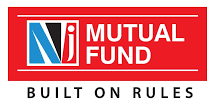The humble 401(k) can form a great foundation for your retirement! After all, it’s been designed to foster long-term saving habits, those that will especially be useful during retired life. However, certain mistakes with the 401(k) can almost erode any potential benefit of this investment.
According to a Houston 401k audit services provider, these errors range from simple innocent mistakes to systematic faults. Here’s what they’ve identified…
1. Failing to Contribute Enough to Take Advantage of Employer Contributions
One of the biggest mistakes employees make is not contributing enough to their 401(k) to qualify for the full employer match. Many companies offer to match employee contributions up to a certain percentage of their salary, often around 3% to 6%. This employer match is essentially free money added to your retirement account, and not contributing enough to receive it is like leaving money on the table. For example, if your employer matches 100% of your contributions up to 5% of your salary and you only contribute 3%, you’re missing out on an additional 2% of free retirement savings.
2. Cashing Out When Changing Jobs
Another costly mistake is cashing out your 401(k) when you change jobs. While it may be tempting to withdraw the money, especially if you’re in a financial pinch, cashing out can have severe consequences. First, you’ll be subject to income taxes on the amount you withdraw, and if you’re under the age of 59½, you’ll also face a 10% early withdrawal penalty. This can drastically reduce the value of your savings. Instead of cashing out, CPAs recommend rolling your 401(k) over into a new employer’s plan or an individual retirement account (IRA).
3. Not Increasing Contribution Rates Over Time
Many employees set a contribution rate when they first enroll in a 401(k) plan and then fail to adjust it as their income increases. While contributing any amount is better than nothing, not increasing your contribution rate over time can significantly limit the growth of your retirement savings. As you receive raises or bonuses, increasing your contribution rate – even by just 1% – can make a substantial difference in your retirement fund over the long term. As such, many 401(k) plans offer automatic escalation features that gradually increase your contribution rate each year.
4. Borrowing Against a 401(k)
While many 401(k) plans allow participants to borrow from their retirement savings, CPAs warn against this practice unless absolutely necessary. Borrowing against your 401(k) might seem like a quick fix for financial difficulties, but it can be detrimental to your long-term retirement goals. When you borrow from your 401(k), you’re removing money that could be compounding and growing over time. Additionally, if you leave your job before the loan is repaid, the outstanding balance becomes due, and failure to repay it can result in taxes and penalties.
5. Investing Too Conservatively
While it’s important to manage risk in your investment portfolio, CPAs note that many people invest their 401(k) funds too conservatively, especially early in their careers. Being overly cautious with your investments can limit growth, making it harder to build sufficient savings for retirement. Younger employees, in particular, have a longer time horizon and can afford to take on more risk in exchange for higher potential returns.
We’re only human. Errors are as possible with finances as any other avenue of life. This is why a formal 401(k) audit process is recommended. This way, any errors being made with the investment are caught early! An audit process is absolutely essential to safeguard your investments and allow them to compound well into retirement.




